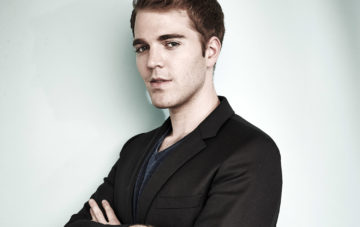It is undeniable that YouTube has changed. With wider use of the internet has come a wider audience, which calls for a wider breadth of content in order to engage all audiences… and most importantly, earn money. This raises questions on how far we as a society will possibly go to gain fame.
We’ve already seen the effects of many a successful YouTuber taking advantage of minorities, and recently even the deceased, in order to gain views and advertising revenue. In response to this, YouTube only raised the threshold of views needed in order to earn money from ads, instead of focusing on the problem at hand: the content itself.
But sponsorship and monetisation is something that we can’t live without in this new media landscape. It allows YouTubers to make a living doing what they enjoy and continue to make amazing content for their subscribers. It only becomes a problem when the sponsorship is the driving force behind making content which alters the intentions of the content creator, which shows in the quality of their videos. Soon enough they rely on oversaturated backgrounds, large neon font, clickbait titles and overly dramatic thumbnail images to draw us into a mediocre video only mentioning the topic in the title in passing. Or even worse, when people try to make a whole 17 minute YouTube video out of the smallest and most mundane aspects of life.
This wasn’t the case in the “Golden Age” of YouTube, when creators made content they were passionate about, without the risk of corporations potentially altering their message. People made videos about things they loved and things they were curious about, in order to share their discoveries and passions with the world.
Although we can’t escape monetisation on YouTube, there are many YouTubers that use their sponsorships and money gained from these videos in order to make original, quality content, and even bring issues to light that weren’t apparent before:
Safiya Nygaard

Formerly of Buzzfeed and Ladylike, Nygaard has kick-started her own YouTube channel and gained a massive following, with her series of videos that look beyond fashion and beauty into the culture that inspires it. Her practical and inquisitive approach to viral trends, in series such as “Questionable fashion decisions”, “Bad makeup experiments” and ”Fashion throughout the decades” have put her on the map. It’s this practicality that was such a central factor in the golden age of YouTube. Making a fool of ourselves to fulfill curiosity wasn’t an issue back then, and paired with the rapid virality of news and trends to make them a thing™, it certainly isn’t now.
Wong Fu Productions

Wong Fu Productions had their start on YouTube in 2007 making lip-sync videos of popular songs while in college. Phil Wang, Wesley Chan and Ted Fu eventually taught themselves how to make short films, with a number of romantic shorts and comedy skits that focussed on love and romance in a very fundamental way. Since then they’ve gotten even stronger, and continued to create larger projects such as “Single By 30”, a series featured on YouTube Red, as well as a feature film “Everything Before Us” on Netflix, among many other sponsored videos. This does not, however, detract from the storytelling, as they attempt to “elevate
messaging, build worlds, and activate viewers” with their sponsored content.
Shane Dawson

Shane Dawson is in the midst of a quarter-life crisis, and he’s taking us along for the ride. He’s one of the OG YouTubers that have continued doing what they enjoy. Recently, he was accused by online magazine Popblast of paedophilic behaviour, using out-of-context audio snippets of a podcast he recorded six years ago. In a video come-back, he acknowledged that his humour in the past was based on trying to get a big reaction out of people by being offensive, but that’s not what he stands for today. It is refreshing to see someone own up to their mistakes and show repentance for it- not only in their words but in their actions, with Dawson saying that he is proud of the progress he has made and the opportunities he is giving the young people featured in his recent videos. His humour is still very shocking, although it no longer relies on offending others and instead allows the shock of his disregard for social norms and taboos to engage his audience.
Anna Akana

Although almost all of Anna’s videos are sponsored, this doesn’t distract from her message. She makes many short videos that draw attention to the intricacies of the human condition, and expands on them to give the best and most personal advice she can about a range of topics, even the more serious ones such as mental health and abuse. Cleverly, her sponsorships only add to the experience, promoting services relevant to the topic of the video and genuinely attempting to help her followers in their journey to love themselves and become better people.
Do you watch any of these channels? What YouTube Channels do you like to watch?






